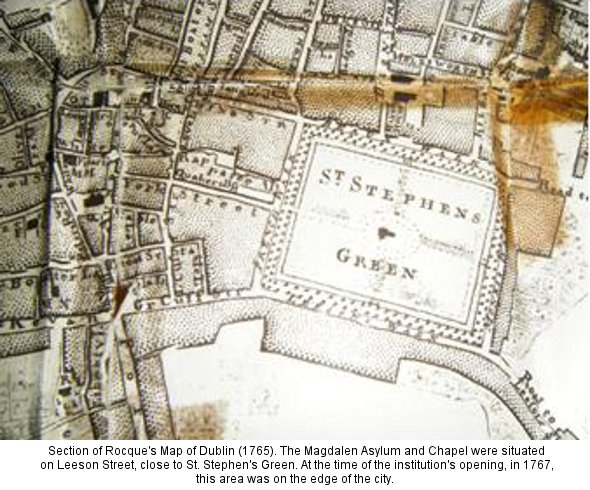Journal Volume 6 2010
‘Wild, Ideal, Romantic and Absurd’: Lady Arbella Denny and the Establishment of Dublin’s First Magdalen Asylum (continued/1)
Rationale for the Magdalen Asylum
Lady Arbella’s involvement with the Foundling Hospital would certainly have drawn her attention to the plight of prostitutes, and this awareness was presumably a factor in her decision to create the new Magdalen Asylum. However, her enterprise also reflected a more widespread contemporary concern about the incidence of prostitution and the threat which it posed to social and moral order. Traditionally, legislative measures had aimed at the containment rather than the elimination of the practice, and the prostitute herself had been regarded as a public nuisance rather than as an object of compassion. By the beginning of the eighteenth century, however, moralists and reformers had begun to question this approach. While the prostitute continued to be regarded as a sinner, it was acknowledged that her errors had their root in need and distress rather than depravity. Punishment alone was recognized to be futile, and rescue and rehabilitation increasingly came to be regarded as the most effective means of winning the ‘fallen’ back to virtue and respectability, thereby benefiting both the individual herself and the wider community.
As the author of the 1767 pamphlet pointed out, prostitution was an unrewarding and hazardous business. Only the most acute need could tempt a girl to adopt such a course, while the harsh treatment commonly meted out ‘often hardens, very seldom reforms’. The new project, by contrast, was intended not as ‘a place of punishment for the wicked but of assistance and reward for those who have ceased to do evil and are resolved to do well’. Based on the example of the Magdalen House founded a few years earlier in London, the asylum shortly to be opened in Leeson Street provided a refuge in which penitents were ‘to be lodged, boarded and clothed … carefully and conscientiously instructed in the principles of true religion, and powerfully assisted in their virtuous resolutions’, before returning to the world as godly, decent and industrious members of society.8



